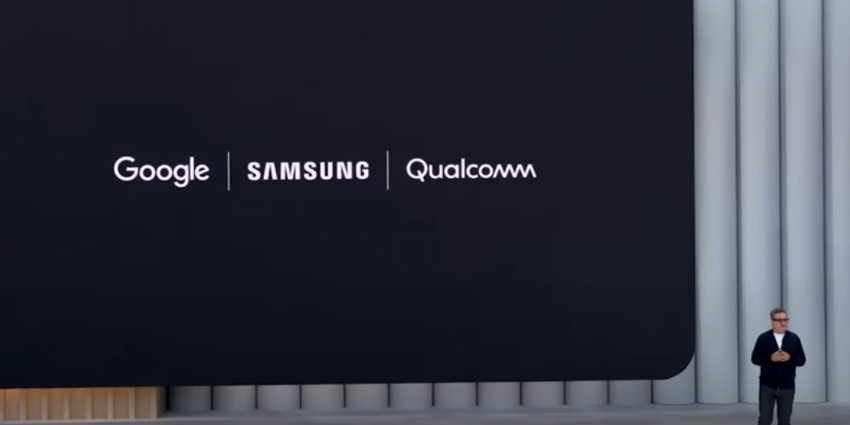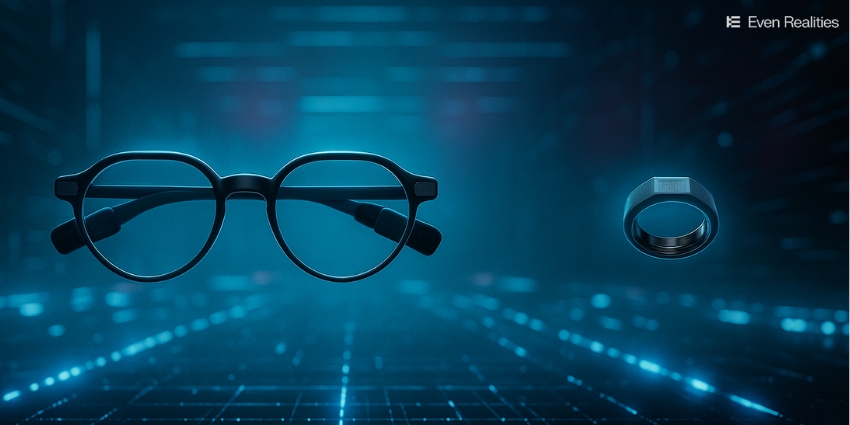This week at Google I/O, the leading technology firm announced a trove of new products to unpack, namely expansions to its Gemini AI framework.
Part of this expansion comes via Google’s AndriodXR initiative, which sees the firm working with a range of XR industry leaders to create MR and AR devices that merge immersive and AI technologies. “That’s exactly why we’re building Android XR,” remarked Shahram Izadi, the leader of Google’s AndroidXR development team.
Izadi also added:
From headsets to glasses and everything in between. We believe there’s not a one size fits all for XR and you’ll use different devices throughout your day. For example, for watching movies, playing games, or getting work done, you’ll want an immersive headset. But when you’re on the go, you’ll want lightweight glasses that can give you timely information without reaching for your phone.
Izadi explained how the Android XR team works with Samsung and Qualcomm to create new Gemini AI use cases on emerging XR devices, such as the much-talked-about Moohan headset, “the first Android XR device,” Izadi noted.
Interestingly, Izadi said that Samsung’s Moohan headset “will be available for purchase later this year,” perhaps around the time Meta Connect kicks off, which is a hot time for XR hardware releases.
AR Smart Glasses: A Natural Form Factor for AI
Izadi reiterated the importance of the XR/AI convergence, which the Google representative first announced at a TED Talk event last month.
AR smart glasses are a “natural form factor for AI,” stated Izadi, who also added:
We’re taking our partnership with Samsung to the next level by extending Android XR beyond headsets to glasses. Our glasses prototypes are already being used by trusted testers and you’ll be able to start developing for glasses later this year.
During the TED2025 conference, Izadi publicly demonstrated the upcoming operating system for smart glasses. He showcased a prototype pair of smart glasses that featured real-time translation, image recognition, and seamless connectivity with other Android devices. This live demonstration highlighted the innovative capabilities of the new system, which is set to launch in the upcoming year.
Izadi said:
Augmented and virtual reality have moved computing from the rectangular screen to the 360 immersive display, and now even the world itself is becoming the display. We now refer to this broad collection of experiences as extended reality, or XR.
“Until now, these innovations have occurred separately and in silos, well here comes act two of the computing revolution, AI and XR are converging, unlocking radical new ways to interact with technology on your terms,” Izadi also added.
AndroidXR: The Next Step for Google’s XR
Google introduced Android XR, a new operating system designed for extended reality, late last year. During the announcement, the company emphasised the role of Gemini AI assistants in enhancing user interactions with headsets and their visualisations.
Built on a familiar Android foundation, the XR operating system supports various existing mobile and tablet applications, as well as content designed explicitly for AndroidXR. This development addresses a significant barrier to the broader adoption of XR technology: users need access to diverse applications and engaging services to justify investing in an XR device.
The Android XR OS aims to advance the future of artificial intelligence, augmented reality, and virtual reality experiences on headsets and smart glasses. AndroidXR is in a preview stage for developers only, with a broader release anticipated in the future.
Developers interested in Android XR can start building their projects using familiar tools such as ARCore, Android Studio, Jetpack Compose, Unity, and OpenXR.
Additionally, Google has entered into a definitive agreement with HTC VIVE, investing $250 million in the leading XR firm. In return, Google will receive valuable XR-related support from HTC, including access to certain employees from HTC’s XR team who will join Google to help develop its own XR solutions.
Reports indicate that Google is testing prototype Android XR smart glasses with select users, emphasising privacy, flexibility, and opportunities. Leading firms such as Samsung, Magic Leap, Lynx, Sony, Qualcomm, and XREAL are also contributing to the advancement of the Android XR platform.







